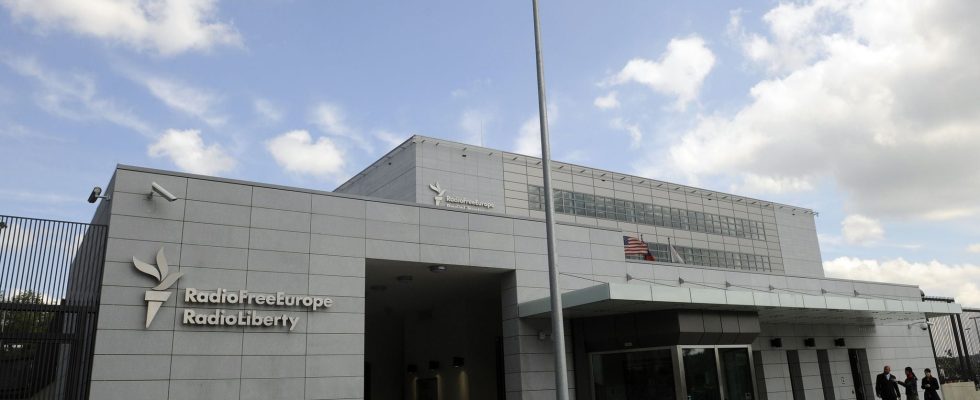The repression of any critical voice since the Kremlin offensive in Ukraine continues. Latest press organization to be blacklisted in Russia: Radio Free Europe/Radio Liberty (RFE/RL). Moscow declared RFE/RL “undesirable” on Tuesday, according to a document consulted by AFP on the website of the Russian Ministry of Justice. This measure prohibits the activities of this multilingual media funded by the American Congress.
RFE/RL, based in Prague, operates in 27 languages in 23 countries, mainly in countries ruled by authoritarian regimes, where media freedom is limited. RFE/RL was founded during the Cold War to counter Soviet propaganda in the Eastern Bloc.
As stated The Moscow Times, a newspaper published in English, the “undesirable” designation prohibits RFE/RL’s work in Russia, exposes employees to prison sentences and criminalizes engagement with the outlet: it is in effect illegal for individuals and media in Russia to republish or share their content. In 2017, remember The Moscow Times, RFE/RL had been qualified by the Russian authorities as a “foreign agent”, whose status imposes administrative constraints and very heavy financial control on the persons or entities concerned. The media rejected this designation.
Washington’s Critics
In May 2015, Vladimir Putin promulgated a law allowing the authorities to ban foreign organizations established in Russia considered “undesirable” by the state. According to this text, “the activity of a foreign or international non-governmental organization, representing a threat to the constitutional foundations of the Russian Federation, the country’s defense capacity or the security of the government, may be recognized as undesirable.”
This law gives the authorities the possibility of banning the foreign NGOs concerned and prosecuting their employees, who risk prison or may be banned from entering Russian territory. It also makes it possible to block the bank accounts of the targeted structures as well as their access to the media. Russian authorities have used this law to target independent media, human rights groups, environmental organizations and educational institutions.
Russia’s ban on RFE/RL shows that Moscow “does not want its people to be informed about what the Russian regime is doing abroad and what it is doing to its own population,” Matthew Miller responded Tuesday , a State Department spokesperson in Washington.
RFE/RL journalist in detention
Among RFE/RL employees still in Russia is Russian-American journalist Alsu Kurmasheva, working for the service in the Tatar and Bashkir languages. She was arrested in October 2023 for not having registered as a “foreign agent”, then, according to Russian media, for spreading “false information” about the war in Ukraine, a crime punishable by prison. In question, his participation in the publication last year of a book entitled Saying no to war, 40 stories of Russians opposed to the Russian invasion of Ukraine.
Alsu Kurmasheva is currently in pre-trial detention in the city of Kazan. A Russian court in Kazan, following a closed-door hearing, on February 1 extended the detention of the Russian-American journalist until April 5, as announced by her employer. It is unknown at this stage the impact that her employer’s new “undesirable” status could have on her. Alsu Kurmasheva is one of two American reporters to be arrested in Russia in 2023, along with Evan Gershkovich, Wall Street Journal.
